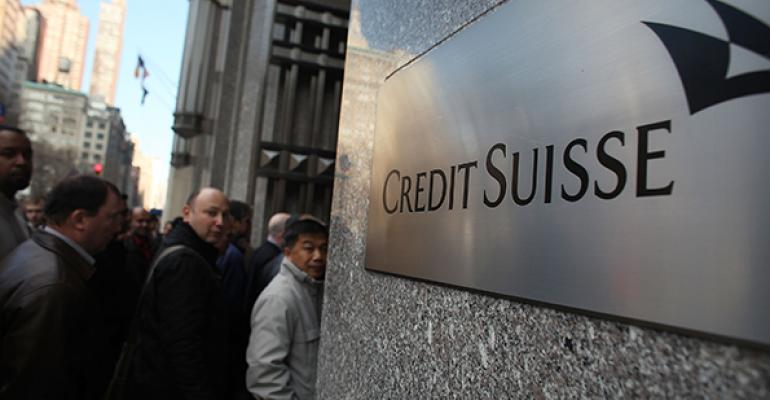By David Voreacos and Giles Broom
(Bloomberg) --Credit Suisse Group AG has frozen dozens of accounts as it tries to determine if U.S. clients are hiding money from the Internal Revenue Service after the firm pledged to come clean about secret assets, according to a person familiar with the matter.
The bank is looking at indicators such as phone numbers or powers of attorney to determine whether Americans are the true owners of accounts not disclosed to the IRS, according to the person, who wasn’t authorized to speak publicly about the matter. Any client activity on these accounts now requires approval by a group within Credit Suisse, the person said.
The unusual move to freeze accounts came in the past week as the U.S. stepped up a Justice Department investigation into why Credit Suisse neglected to tell them about $200 million in assets held by an American client who pleaded guilty Nov. 4 to conspiring to defraud the IRS, according to several people familiar with the matter.
The bank wants to show that any hidden accounts were a lapse in controls and not a criminal act, another person familiar with the matter said.
“Credit Suisse has to prove it’s doing all it can to identify Americans, in order to draw a line under its U.S. tax dispute,” said Andreas Venditti, an analyst at Vontobel Holding AG in Zurich. “It’s hard to assess the potential significance of these lingering issues as banks don’t disclose details of unresolved legal matters.”
Dominique Gerster, a spokesman for the Zurich-based bank, and Nicole Navas, a Justice Department spokeswoman, declined to comment on Wednesday about the freezing of accounts.
The U.S. is investigating how effectively the firm rooted out hidden American accounts after a subsidiary pleaded guilty in May 2014, admitting it helped thousands of Americans evade taxes. A monitor appointed by New York’s banking regulator continues to review Credit Suisse’s operations after his initial two-year appointment was extended.
Wealthy Clients
Credit Suisse, which paid a $2.6 billion fine with its guilty plea, is struggling to overcome its problems with U.S. tax authorities as it pins its future on managing money for the wealthy. The bank is betting it can attract rich individuals and families by offering them loans in the hundreds of millions of dollars while it pivots from investment banking to wealth management.
U.S. prosecutors and regulators are probing whether the bank’s failure to reveal accounts belonging to Dan Horsky, a retired business professor who pleaded guilty Nov. 4, was a lapse in internal controls or a crime involving bankers who acted with approval of managers, the people said. The government is also examining whether Credit Suisse helped clients with ties to Israel evade U.S. taxes, they said.
Credit Suisse is now questioning relationship managers about specific accounts with links to the U.S., according to one of the people familiar with the matter. The bank will likely argue to U.S. authorities that managers didn’t know about lingering undeclared accounts that weren’t detected in earlier internal probes, the person said.
Credit Suisse was one of 85 Swiss banks that signed agreements with U.S. prosecutors admitting they helped Americans evade taxes. Eighty of those banks signed non-prosecution agreements through a disclosure program that forced them to reveal their secrets.
80 Banks
In all, the 80 banks held about $50 billion in 35,000 U.S. accounts from 2008 to 2013, giving the Justice Department and IRS a rich trove of data to mine about the movement of money into and out of Swiss banks. That data has made it easier for U.S. authorities to smoke out undisclosed accounts.
After settlements and the rising cost of compliance, Swiss banks are taking an “aggressive attitude” toward clients with ties to the U.S., said Paul Behling, a lawyer who works at Withers LLP in New York and New Haven, Connecticut.
“They’re writing to wealthy clients with U.S. links, such as mailing addresses or cellphone numbers, and telling them they need to close their accounts,” Behling said of Swiss banks in general. “Banks will make exceptions if the accounts are large enough to make it worth their while.”
At a U.S. Senate hearing in February 2014, Credit Suisse officials said they had closed about 19,000 of 22,000 accounts held by U.S. clients. They said outside experts including lawyers and accountants had helped check whether clients who might have a possible U.S. connection were identified.





